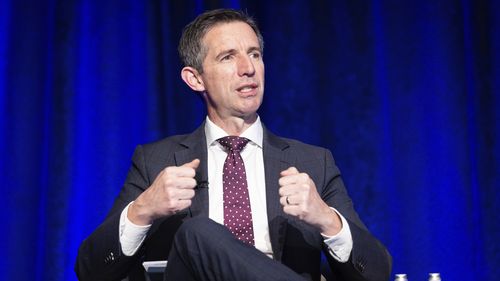Share this @internewscast.com
Last week, Simon Birmingham, the chief executive of the Australian Banking Association, expressed concerns that the initiative to eliminate surcharging and reduce interchange rates could compel banks to cut back on investments to protect their customers from fraud.
“Our major worry with the Reserve Bank’s plans is that it could weaken the ability to ensure the safety and security of essential services for Australians,” he mentioned at the Cyber Summit hosted by the Australian Financial Review on Tuesday.

In response, RBA Governor Bullock, when asked about these remarks by the economic committee of the federal parliament, stated she was “somewhat surprised” by these claims.
She also said banks are highly unlikely to follow through on the threat.
“I find it very unlikely that banks would risk compromising their own security measures or fraud protections,” Bullock commented.
“I can’t understand why they would even suggest why they would do that.”
The RBA’s proposed draft to revamp the card payments system aims to prohibit all surcharges on debit and credit card transactions, potentially saving consumers approximately $1.2 billion annually.
To mitigate any negative impact on businesses that depend on these surcharges, the RBA also plans to lower the ceiling on interchange fees, which are payments made by merchants to banks whenever a customer uses a card issued by that bank to make a purchase.

The RBA said that change would save businesses $1.2 billion a year, and that 90 per cent of Australian businesses â most of them small organisations â would be better off under the combined changes.
However, lower interchange rates would provide a revenue hit to banks.
The ABA and many major banks have spoken out in favour of the ban on surcharging, but have been campaigning to have the proposed interchange reduction scrapped.
“This is what the (fraud) argument is about, it’s about interchange,” Bullock said.
“It’s about how much money issuers get when you go and use particularly your credit card.”
“That’s what this argument is about.”
She also reminded banks that they have an obligation to protect customers from fraud.

“To me, these seem like empty threats. Would that approach (of reducing investment in scam protection) be consistent with your expectations of them?” Labor MP Jerome Laxale asked.
“It’s not⦠they are obviously looking for ways to push back on the reduction in interchange, because that is revenue.”
“They do still make money out of this,” Bullock said.
“So I think this idea that somehow they’re going to be losing money on this, I really don’t understand that argument at all.
“They provide these services, these cards, and they make their money back through a variety of ways, and curtailing fraud protection to try and save money ultimately won’t be good for them and it won’t be good for the payments system.
“So I don’t think that it’s something that, realistically, we will see.”










